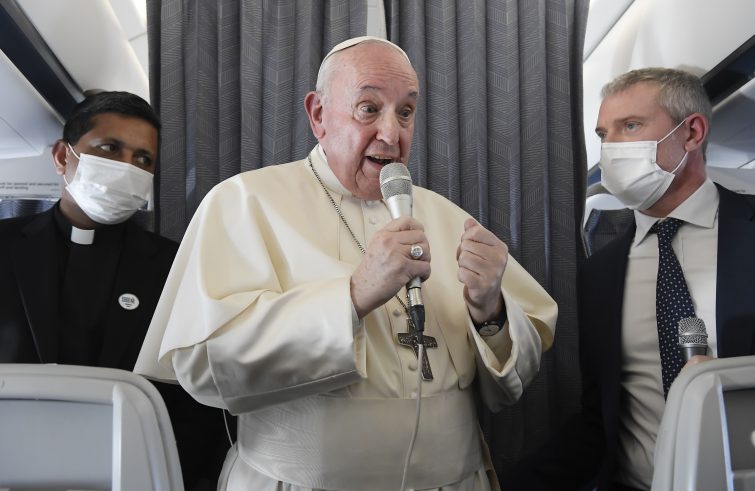
“We are losing the ability to listen to those in front of us, both in the normal course of everyday relationships and when debating the most important issues of civil life.” The cry of alarm was raised by the Pope in his message for the World Day of Social Communications, to be celebrated on 29 May on the theme: “Listening with the ear of the heart.”
“there is an interior deafness worse than the physical one”,
“We all have ears, but many times even those with perfect hearing are unable to hear another person”, Francis denounces. Thus “the refusal to listen often ends up turning into aggression towards the other.” “It is not enough simply to listen, but that it is necessary to listen well”, Francis’ guidance: “listening is a dimension of love”, and we “are not made to live like atoms, but together.”
“Eavesdropping and spying, exploiting others for our own interests” is “an ever-present temptation that nowadays seems to have become more acute in the age of social networks”,
is the Pope’s warning, for whom “the lack of listening, which we experience so often in daily life, is unfortunately also evident in public life, where, instead of listening to each other, we often ‘talk past one another’”: this is a symptom of the fact that “rather than seeking the true and the good, consensus is sought.”
Instead, good communication, “does not try to impress the public with a soundbite, with the aim of ridiculing the other person, but pays attention to the reasons of the other person
and tries to grasp the complexity of reality.”
“In many dialogues we do not communicate at all”, Francis remarks: “We are simply waiting for the other person to finish speaking in order to impose our point of view.” In these situations, remarks the Pope quoting philosopher Abraham Kaplan, “dialogue is a duologue: a monologue in two voices.”
“Communication does not take place if listening has not taken place, and there is no good journalism without the ability to listen”, is the Pope’s message to communicators by profession: “Listening to several sources, ‘not stopping at the first tavern’ – — as the experts in the field teach us — ensures the reliability and seriousness of the information we transmit.”
“It is sad when, even in the Church, ideological alignments are formed and listening disappears, leaving sterile opposition in its wake”,
Francis denounces. With regard to the “exertion of listening”, the Pope cites “a great diplomat of the Holy See”, Cardinal Agostino Casaroli, who used to speak of the “martyrdom of patience”, needed “to listen and be heard in negotiations with the most difficult parties, in order to obtain the greatest possible good in conditions of limited freedom.” “But even in less difficult situations, listening always requires the virtue of patience, together with the ability to allow oneself to be surprised by the truth, even if only a fragment of truth, in the person we are listening to”, is the Pope’s recommendation, calling upon the faithful to be inspired by the wonder of children.
Francis thus recalled “the reality of forced migration”:
“To overcome prejudices about migrants and and to melt the hardness of our hearts, we should try to listen to their stories. Give each of them a name and a story.”
“Many good journalists already do this. And many others would like to do it, if only they could. Let us encourage them! Let us listen to these stories! Everyone would then be free to support the migration policies they deem most appropriate for their own country. But in any case, we would have before our eyes not numbers, not dangerous invaders, but the faces and stories, gazes, expectations and sufferings of real men and women to listen to.” Therefore we must say NO to “the infodemic”, a vicious fruits of this pandemic, while embracing the ability to listen profoundly instead, especially to the “social unease.”
“In the Church, too, there is a great need to listen to and to hear one another.
It is the most precious and life-giving gift we can offer each other.” The Pope reiterates that listening is an essential precondition for the ecclesial community in the concluding lines of his message. “We should listen with the ears of God that we may speak the word of God” , Francis thus quotes from Bonhoeffer: “the first service we owe to others in communion consists in listening to them. Whoever does not know how to listen to his brother or sister will soon no longer be able to listen to God either. The most important task in pastoral activity is the “apostolate of the ear”, Francis remarks: “to listen before speaking. Freely giving some of our own time to listen to people is the first act of charity.” Francis reminds the faithful: “A synodal process has just been launched.” “Let us pray that it will be a great opportunity to listen to one another.” In fact, communion “is not the result of strategies and programmes, but is built in mutual listening between brothers and sisters.”










